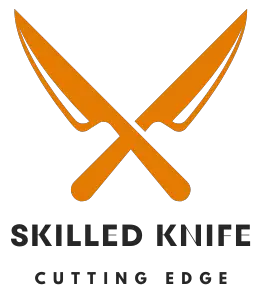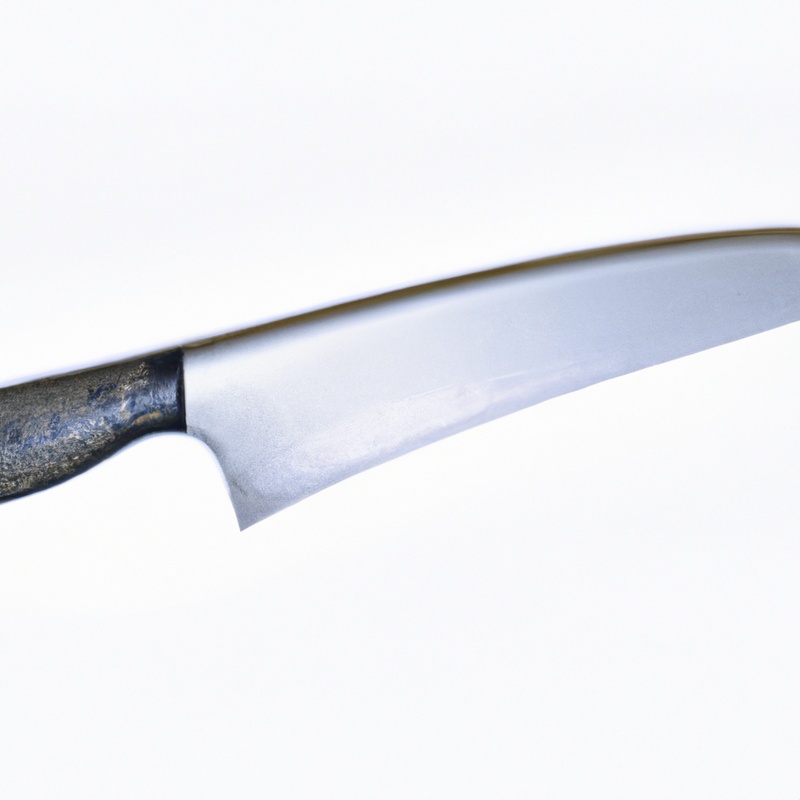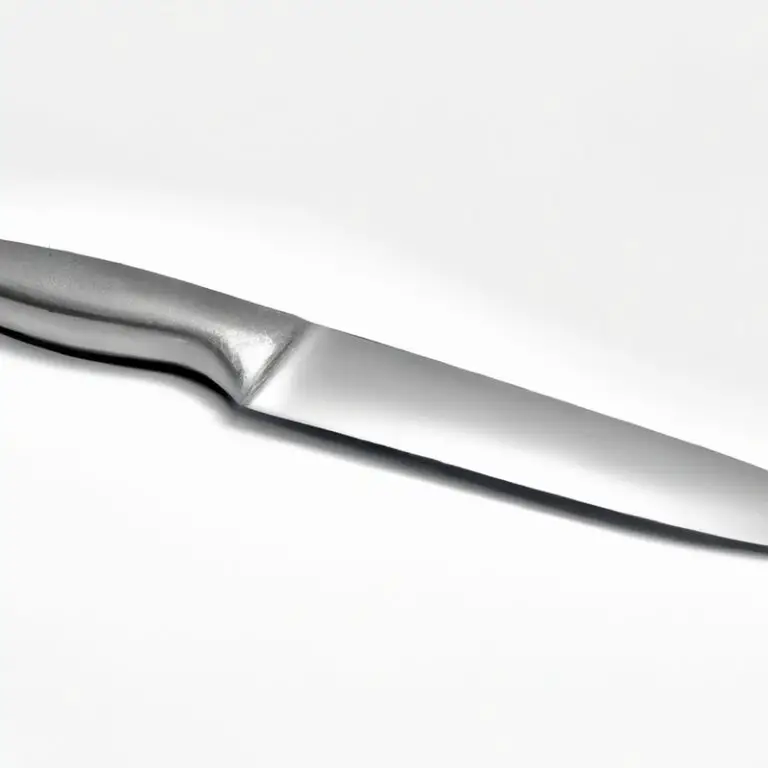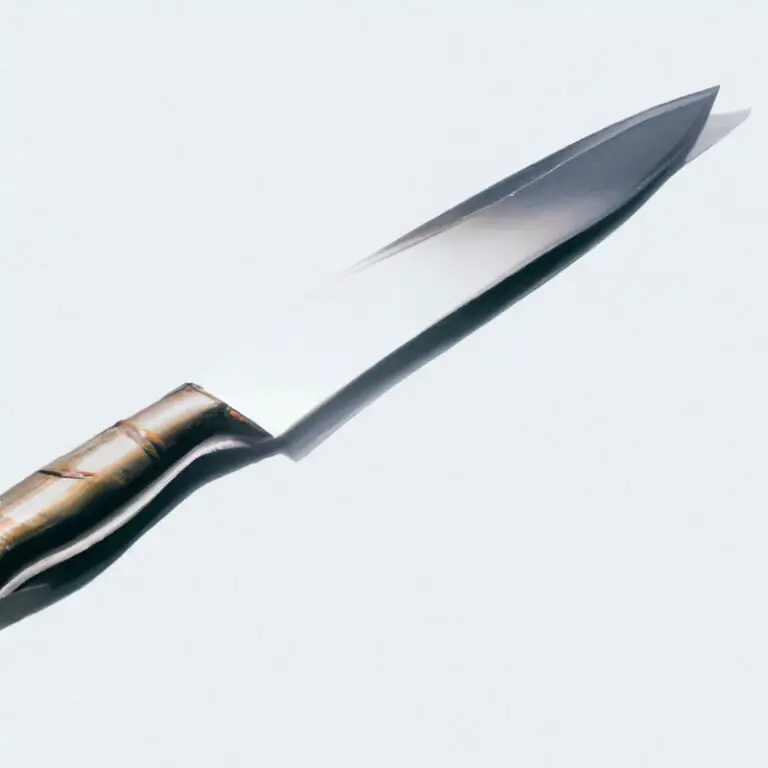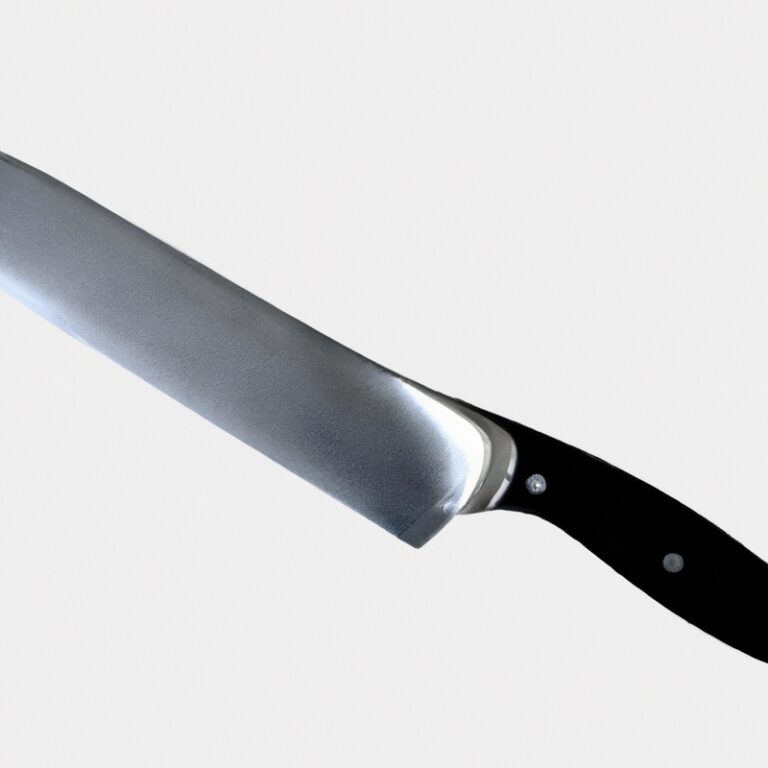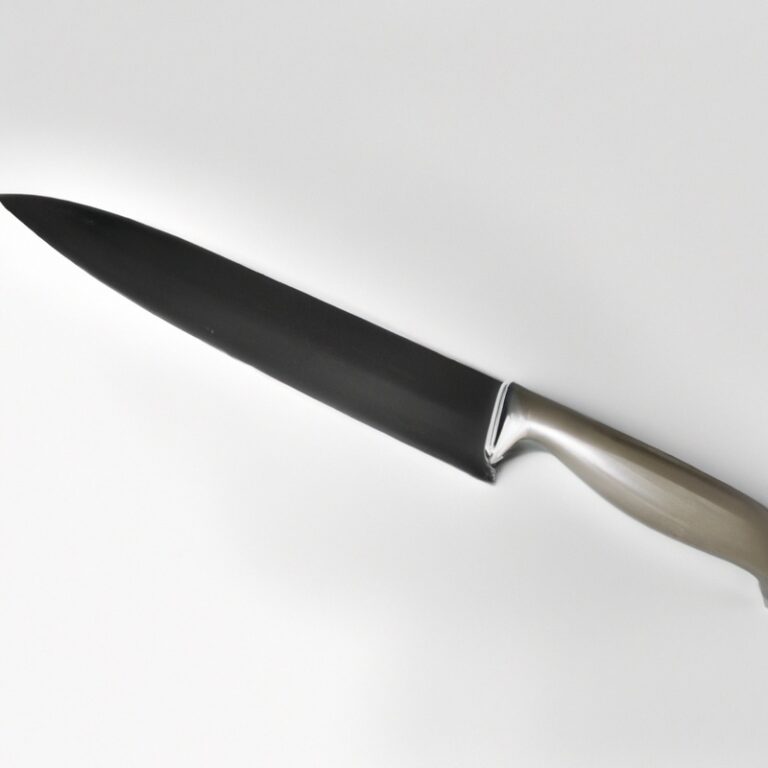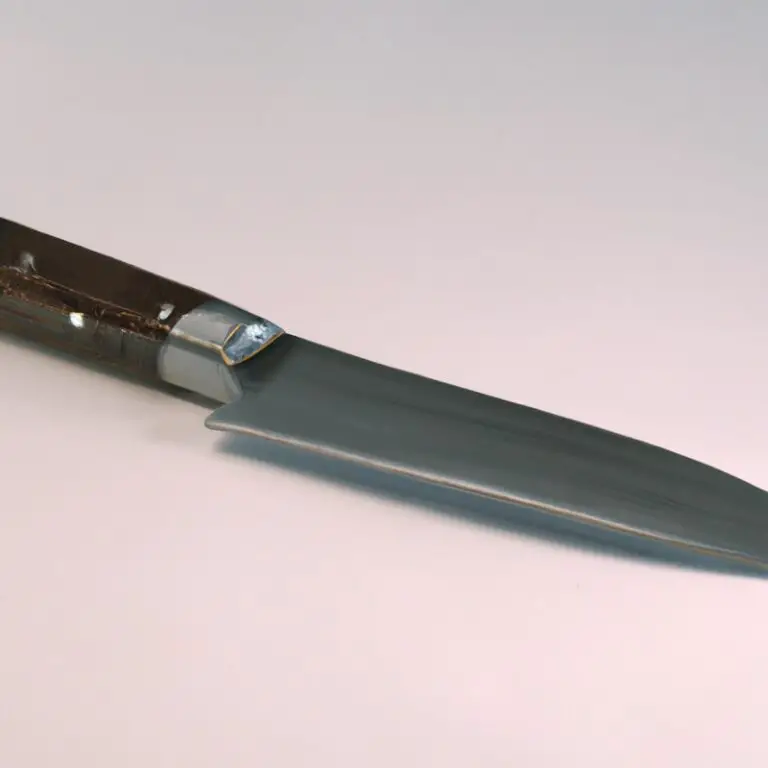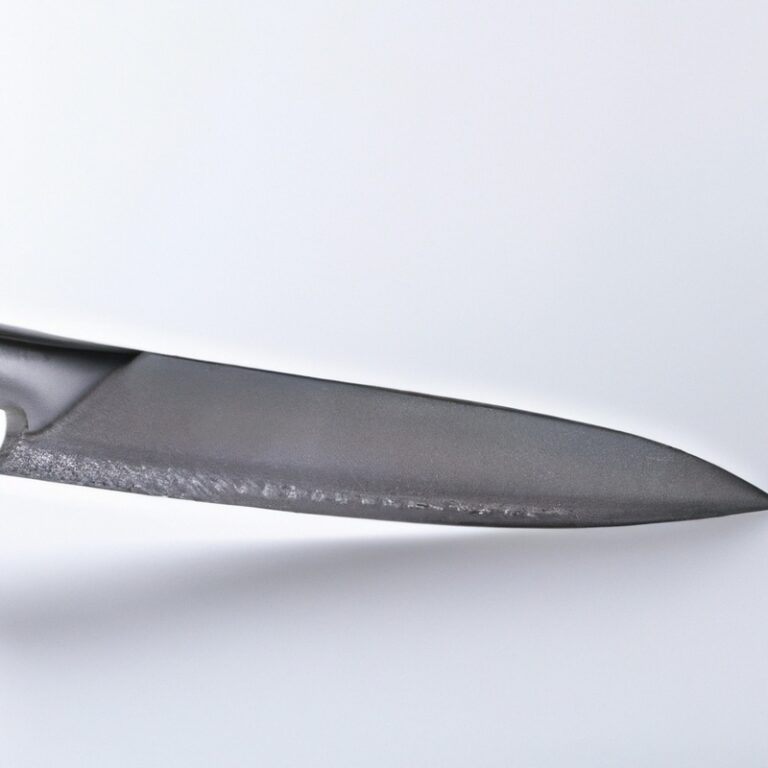What Is The Role Of Cobalt In Stainless Steel Knives?
Key Takeaways:
- Cobalt enhances the strength and hardness of stainless steel knives.
- Cobalt improves the knives’ resistance to corrosion and wear.
- The inclusion of cobalt in stainless steel knives allows for better edge retention.
- Cobalt helps in achieving a fine balance between hardness and toughness in the blade.
Have you ever wondered what makes stainless steel knives so sharp and durable? Well, the secret ingredient lies in the addition of cobalt.
Cobalt plays a crucial role in enhancing the strength, hardness, and corrosion resistance of stainless steel knives, making them indispensable tools in the kitchen or the great outdoors.
In this article, I will dive into the benefits of cobalt in stainless steel knives, explore the common cobalt alloys used, uncover the manufacturing process, and discuss key factors to consider when choosing cobalt stainless steel knives. So, let’s embark on this journey and uncover the hidden power of cobalt in our beloved knives.
| Role of Cobalt in Stainless Steel Knives | |
| Property | Description |
| Cobalt Content | Cobalt is added to stainless steel knives to improve their hardness and strength. |
| High Temperature Stability | Cobalt helps stainless steel knives maintain their strength and hardness at high temperatures. |
| Wear Resistance | By adding cobalt, stainless steel knives exhibit improved wear resistance, increasing their lifespan and durability. |
| Corrosion Resistance | The presence of cobalt in stainless steel knives enhances their resistance to corrosion, preventing rust and increasing longevity. |
| Toughness | Cobalt aids in increasing the toughness of stainless steel knives, making them more resistant to chipping or breaking. |
Benefits of cobalt in stainless steel knives
Enhanced strength and durability
Enhanced strength and durability are key benefits of incorporating cobalt into stainless steel knives.
The addition of cobalt helps increase the overall strength and durability of the knife, making it more resistant to wear, chipping, and corrosion.
This means that the knife will maintain its sharpness and performance for longer periods of time, even with regular use.
Cobalt also aids in improving the knife’s ability to withstand high temperatures, making it ideal for various cooking tasks.
Overall, the inclusion of cobalt in stainless steel knives enhances their longevity and reliability, making them a great investment for both professional chefs and home cooks.
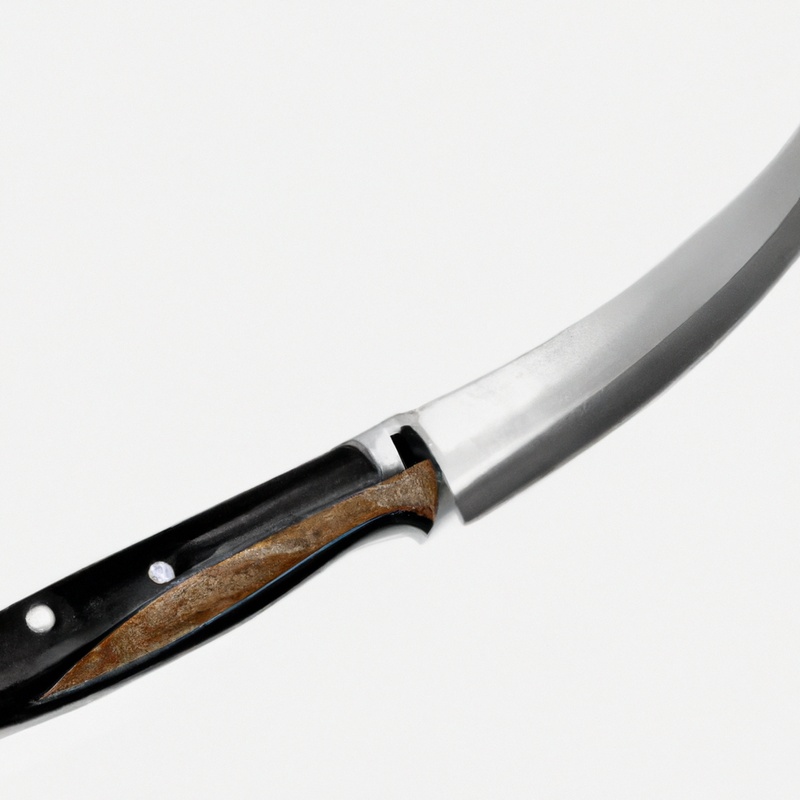
Improved hardness and edge retention
Cobalt plays a crucial role in improving the hardness and edge retention of stainless steel knives.
Its addition to the alloy enhances the steel’s ability to hold a sharp edge for longer periods of time, making it ideal for cutting tasks that require precision and durability.
Cobalt’s hardness also contributes to the overall strength of the knife, reducing the risk of chipping or breaking during use.
This ensures that the knife remains reliable and efficient, even with prolonged and heavy use.
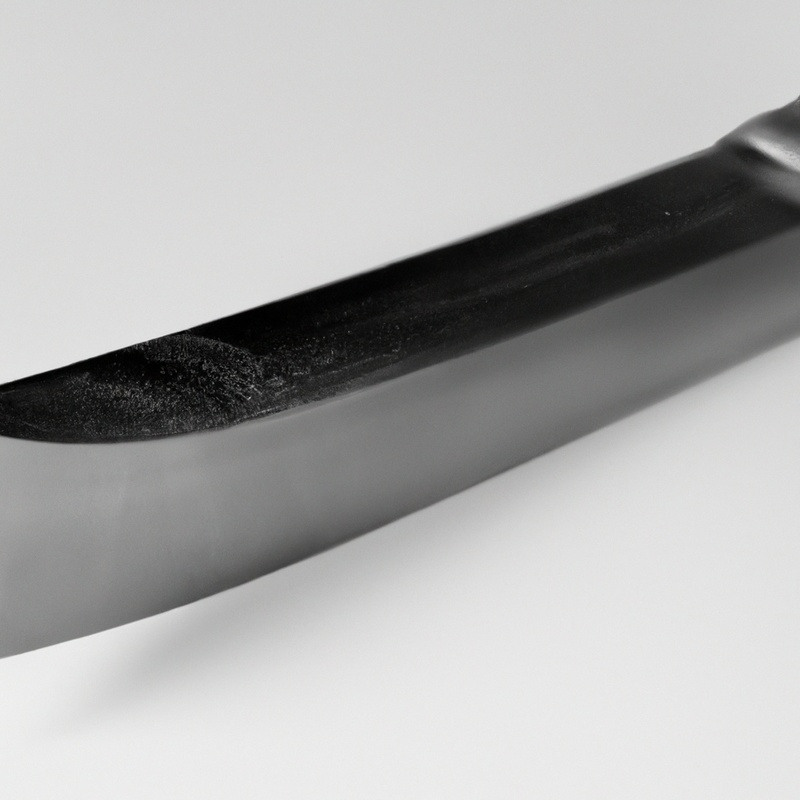
Corrosion resistance
Corrosion resistance is an important factor to consider when choosing stainless steel knives with cobalt. These knives are highly resistant to rust and staining, making them ideal for use in wet and humid environments.
Cobalt increases the knife’s ability to withstand corrosion caused by exposure to moisture, acids, and salts.
It forms a protective layer on the surface of the steel, preventing oxidation and maintaining the knife’s appearance and performance over time. With cobalt, you can enjoy a durable and long-lasting knife that remains free from rust and corrosion even with regular use.
Heat resistance
Heat resistance is one of the key benefits of cobalt in stainless steel knives. Cobalt helps the blades withstand high temperatures without losing their hardness or edge retention.
This makes them ideal for tasks that involve prolonged exposure to heat, such as cooking or working near open flames.
Additionally, the heat resistance of cobalt stainless steel knives allows them to maintain their sharpness and performance over time, ensuring long-lasting durability. So, if you’re looking for a knife that can handle the heat, cobalt stainless steel is a great choice.
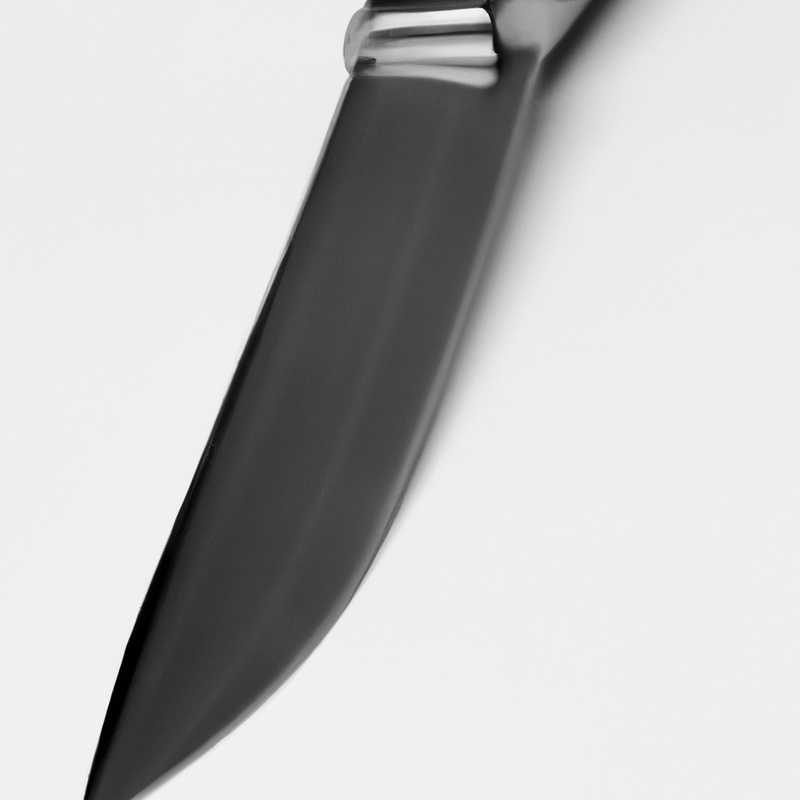
Cobalt alloys commonly used in stainless steel knives
VG10
VG10 is a popular cobalt alloy used in stainless steel knives. Known for its exceptional performance and high-quality, VG10 is widely regarded by both professional chefs and knife enthusiasts.
It offers enhanced strength and durability, improved hardness and edge retention, excellent corrosion resistance, and remarkable heat resistance.
With VG10, you can expect a knife that can withstand the demands of everyday use while maintaining its sharpness and performance. Whether you’re a home cook or a professional chef, VG10 knives are a great choice for your kitchen.
AUS-8
AUS-8 is a popular type of stainless steel used in knife making. It is known for its excellent balance of hardness, toughness, and corrosion resistance.
AUS-8 is relatively easy to sharpen and holds a good edge for a decent amount of time.
It is commonly found in mid-range knives, making it a solid choice for everyday use. However, it may not perform as well as higher-end steels in terms of edge retention.
Overall, AUS-8 is a reliable option for those looking for a durable and affordable stainless steel knife.
440C
440C is a high-carbon stainless steel commonly used in knife blades. It’s known for its excellent edge retention and wear resistance, making it a popular choice for knives that need to hold up to frequent use. With a high amount of carbon and chromium, 440C steel offers good corrosion resistance and can withstand harsh environments. Its fine grain structure allows for easy sharpening and provides a sharp, long-lasting edge. Overall, 440C is a reliable option for those seeking a durable and high-performing stainless steel knife.
D2
D2 is a popular cobalt alloy used in stainless steel knives. It offers excellent hardness and edge retention, making it suitable for heavy-duty use.
D2 knives are known for their durability and ability to hold a sharp edge for extended periods.
They also have good corrosion resistance, which helps prevent rust and staining. D2 knives are commonly used by professionals and enthusiasts alike, especially in demanding tasks like hunting and woodworking.
So if you’re looking for a reliable and long-lasting stainless steel knife, consider one made with D2.
Manufacturing process of cobalt stainless steel knives
Melting and alloying
Melting and alloying are key steps in the manufacturing process of cobalt stainless steel knives.
To create the desired composition, raw materials including cobalt, iron, chromium, and other elements are melted together in a high-temperature furnace.
This melting process ensures that the cobalt is evenly distributed throughout the stainless steel alloy.
Alloying involves adding desired elements to the molten mixture to achieve specific properties such as enhanced strength, hardness, and corrosion resistance.
The precise control of the melting and alloying processes is crucial in obtaining high-quality cobalt stainless steel knives.
Forging and shaping
Forging and shaping is a critical step in the manufacturing process of cobalt stainless steel knives.
It involves using a combination of heat and pressure to shape the metal into the desired knife blade form.
This process helps to improve the density and strength of the steel, resulting in a durable and high-quality knife.
The skilled craftsmen utilize various techniques, such as hammering and pressing, to shape the steel and create the intricate details of the knife.
This step is crucial in ensuring the final product meets the desired specifications and delivers optimum performance to the users.
Heat treatment and tempering
Heat treatment plays a crucial role in the manufacturing process of cobalt stainless steel knives.
It involves processes like annealing, quenching, and tempering to enhance their hardness and durability.
During heat treatment, the metal is heated to a specific temperature and then cooled rapidly to increase its hardness.
Tempering is then done to reduce the hardness slightly and improve toughness.
This process helps to achieve the desired balance between hardness and toughness, resulting in knives that can retain a sharp edge while being strong enough to withstand wear and impact.
Final finishing and sharpening
Final finishing and sharpening are essential steps in the manufacturing process of cobalt stainless steel knives.
During the final finishing stage, the knives undergo polishing and buffing to give them a smooth and attractive appearance.
This step helps to remove any imperfections and enhance the overall aesthetic appeal of the knives.
After the final finishing, the knives are sharpened to achieve a razor-sharp edge.
This is done using specialized sharpening tools and techniques to ensure precision and consistency.
A sharp edge is crucial for the performance of a knife in cutting tasks.
The final finishing and sharpening processes play a significant role in ensuring that cobalt stainless steel knives are not only visually appealing but also highly functional.
Factors to consider when choosing cobalt in stainless steel knives
Budget and cost
When considering cobalt in stainless steel knives, budget and cost are important factors to keep in mind.
Cobalt alloys tend to be more expensive compared to other types of stainless steel.
However, they also offer superior performance and durability.
So, if you’re willing to invest a bit more, you can get a high-quality knife with excellent edge retention and corrosion resistance.
Just make sure to consider your budget and the long-term value of the knife before making a decision.
Intended use and purpose
When choosing cobalt in stainless steel knives, it is important to consider the intended use and purpose of the knife.
Different knives are designed for specific tasks, and the amount of cobalt in the steel can affect its performance in those tasks.
For example, if you need a knife for heavy-duty cutting or chopping, a higher cobalt content may provide increased strength and durability.
On the other hand, if you require a knife for precision slicing or delicate work, a lower cobalt content may be more suitable for achieving a sharper edge.
Considering your intended use and purpose will help you find the right balance of cobalt in your stainless steel knife.
Maintenance and care requirements
To ensure the longevity of your cobalt stainless steel knife, there are a few maintenance and care requirements to keep in mind.
- Clean your knife after each use: Rinse the blade with warm water and mild soap, then dry it thoroughly to prevent any moisture buildup that could lead to corrosion.
- Avoid harsh cleaning agents: Harsh chemicals can damage the blade’s finish, so stick to gentle cleansers and non-abrasive sponges or cloths.
- Store it properly: Use a knife block, magnetic strip, or sheath to protect the blade from physical damage and to prevent accidents when reaching for it.
- Sharpen regularly: Cobalt stainless steel knives can maintain their sharpness for longer, but regular sharpening with a whetstone or honing rod will help maintain optimal cutting performance.
- Avoid cutting on hard surfaces: Cobalt blades can chip if heavy force is applied on hard materials. To prevent this, use a cutting board made of wood or softer materials.
Final Verdict
The benefits of cobalt in stainless steel knives cannot be overstated. Cobalt enhances the overall strength, durability, hardness, and edge retention of the knives.
It also provides excellent corrosion resistance and heat resistance, making it ideal for kitchen and outdoor applications.
Common cobalt alloys used in stainless steel knives include VG10, AUS-8, 440C, and D2. The manufacturing process involves melting and alloying, forging and shaping, heat treatment and tempering, and final finishing and sharpening.
When choosing cobalt in stainless steel knives, factors such as budget, intended use, and maintenance requirements should be considered.
Overall, cobalt is a crucial ingredient that elevates the performance and durability of stainless steel knives, making them reliable and long-lasting tools for various cutting tasks. Trust in the expertise and knowledge presented in this article to make an informed decision about cobalt in stainless steel knives.
